
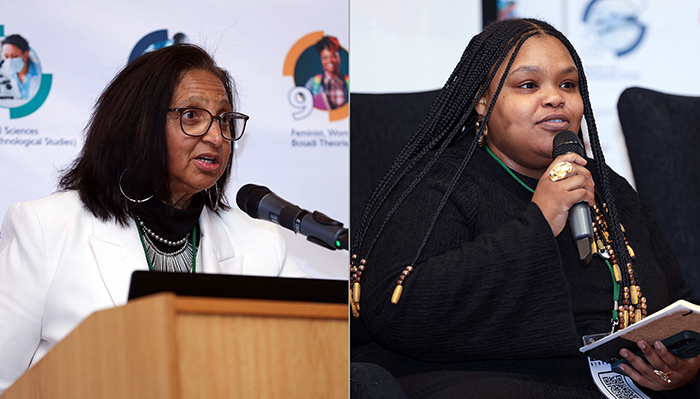
Prof Darlene Miller and Kealeboga Ramaru
The sometimes hostile digital environment, podcast culture and the narrative that "women are winning", reinforce patriarchy and fuel gender divide. These were some of the points made during a panel discussion on Catalytic Niche Area 9: Feminist/Womanist/Bosadi theorisations, moderated by Prof Darlene Miller of Unisa’s Thabo Mbeki School of Public and International Affairs. The discussion highlighted the partnerships required to achieve gender equality.
The panellists deliberated on whether the struggle for gender equality is still necessary or has it become a slow evolutionary transition. They also considered the status of patriarchal power, partnerships that could strengthen gender equality, and how Africa can connect with digitalisation and Fourth Industrial Revolution (4IR) perspectives without losing authenticity. Further, the discussion highlighted that the struggle for gender equality is far from over.
Vanita Daniels, former Director of Rise Up Against Gender Based Violence, noted that conversations around gender issues continue to be male-centred. "This has led to a shift in funding towards boys and men," she said.
While conversations and interventions should be gender inclusive, Daniels added that the focus of gender equality programmes should also not divert attention from women – the actual oppressed group.
For Daniels, it seems that among men, there is a lot of "woe is me", "we are getting the short end of the stick" and "how terrible it is to be a man right now". From her observation, she explains that the claim that "women are winning" had been a recurring issue in a series of Tavern Dialogues held with men at community drinking spots in Cape Town, Durban and Johannesburg.
"We asked them that if they had the opportunity to become women, would they agree to it. They answered 'No!'," said Daniels. "Because it has never been great to be a woman, especially a black woman."
Kealeboga Ramaru, Programme Manager at the Heinrich Böll Foundation, highlighted how the digital space has exacerbated the gender equality crisis. Rather than serving as a neutral or empowerment tool, the digital environment has, in some ways, become a volatile space that amplifies gender-based hostility. Ramaru also referred to online platforms as "neglected spaces" that could be used to address gender injustice. "These spaces," she suggested, "hinder the progress toward gender equality."
"Podcast culture, in particular, has reinforced the notion that a gender war exists," said Ramaru. Noting that some digital spaces had become destructive and often driven by algorithms that are racist, anti-black, anti-woman and anti-poor, Ramaru called for research on the relationship between gender equality, 4IR and algorithms, and their impacts thereof.
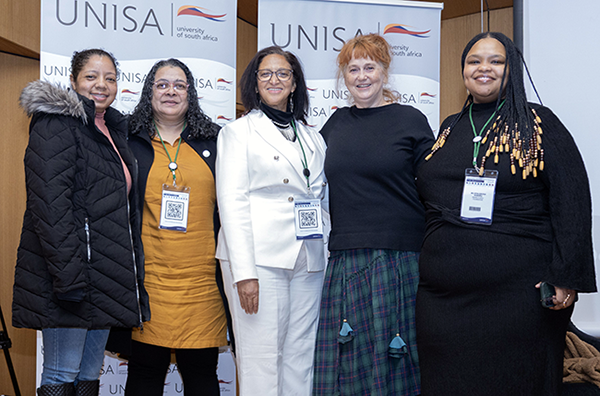
From left: Vanita Daniels, Bernedette Muthien, Prof Darlene Miller, Samantha Hargreaves and Kealeboga Ramaru
Other points made during the panel discussion were the connections between patriarchy, colonialism and capitalism, and the notion that nurturing roles are for women only.
Samantha Hargreaves of Women in Mining highlighted the interrelated crises the world is grappling with, including climatic and ecological degradation, a mounting debt crisis and social reproduction.
Emphasising that the burden of inequality is deeply embedded within these overlapping challenges, the question she posed was whether feminism adequately addresses all these crises. "Gender equality is not enough. There is a bigger struggle, particularly in confronting capitalism, which is exploitative, inherently racist, colonial and patriarchal."
Observing that there are multiple layers of systemic oppression to dismantle, Hargreaves called for a critical re-evaluation of development and how some of it may destroy lives, if not carefully executed.
Bernedette Muthien, heritage and legacy expert and a board member of the Iziko Museum, pointed out that the pursuit of gender equality is a fight that is not passive, but also active. She noted: "It requires active engagement, as patriarchy, colonialism and Christianity remain the root cause of systemic injustice."
According to her, the insidious nature of colonialism creates a comprador class – people who help the oppressors succeed in their mandate. "Every day, you have to rid your head of colonialism," she said. "Personally, I have a mantra that I chant daily for this purpose."
Muthien also discussed the term "rematriation", meaning, "to bring it all home to the mother – the motherland". She used the expression "male mothers" to indicate that rematriation affirms everyone as equal and having the ability to nurture. "We must all nurture one another, despite our genders," she said.
Lively, spirited and engaging, the panel discussion demonstrated how much work remains to uproot gender disparities – not only those already deeply embedded in society, but also those entering the digital domain. The Feminist/Womanist/Bosadi theorisations has ample room for research growth and exploration.
* By Clairwyn Rapley, Research Support Directorate
Publish date: 2025-09-05 00:00:00.0
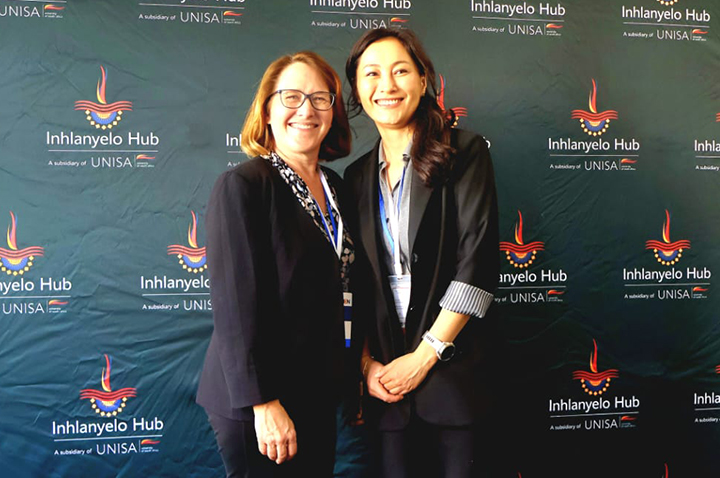 Unisa roundtable focuses on empowering SA women to lead in innovation
Unisa roundtable focuses on empowering SA women to lead in innovation
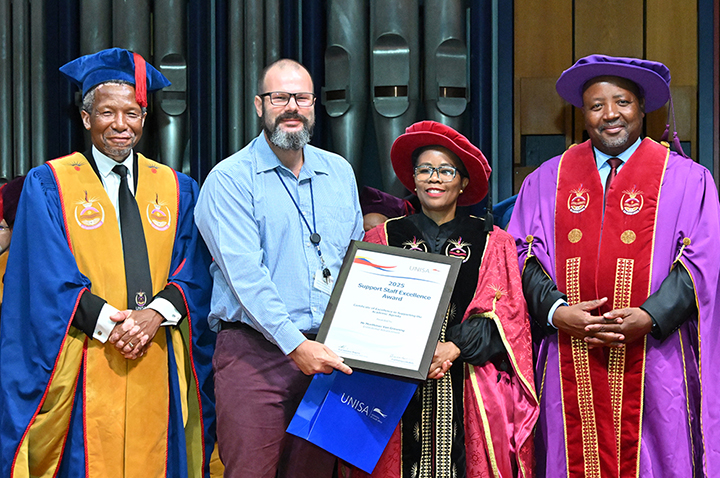 Unisan recognised for web excellence
Unisan recognised for web excellence
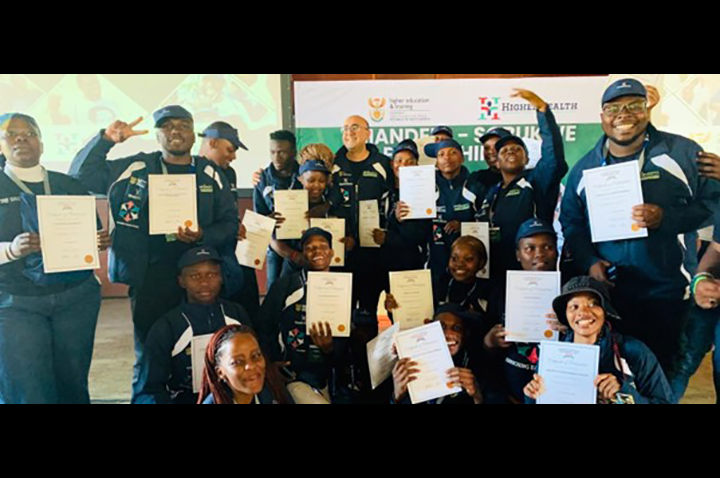 Office of the Dean of Students participates in leadership camp
Office of the Dean of Students participates in leadership camp
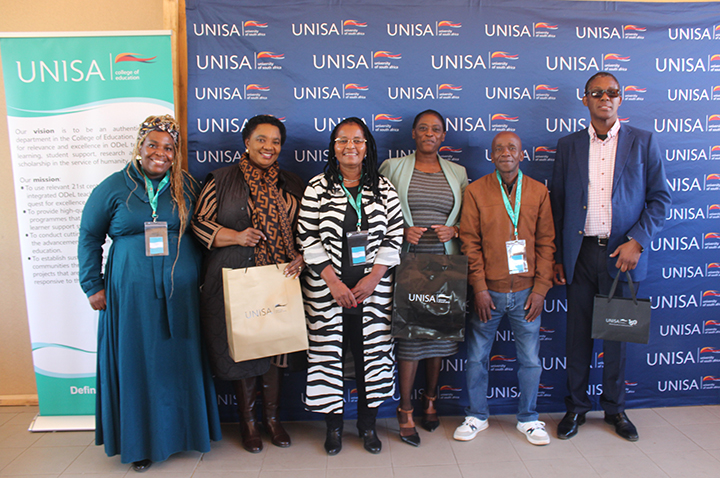 Unisa project fosters digital and pedagogical innovation in Limpopo schools
Unisa project fosters digital and pedagogical innovation in Limpopo schools
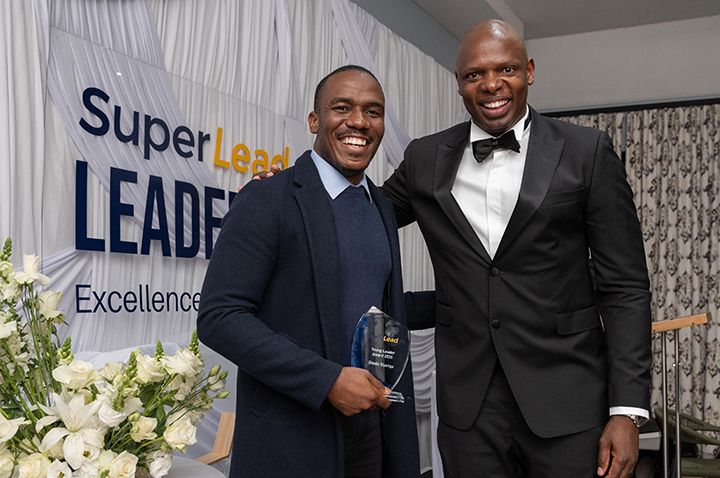 Unisa student wins prestigious national leadership award
Unisa student wins prestigious national leadership award